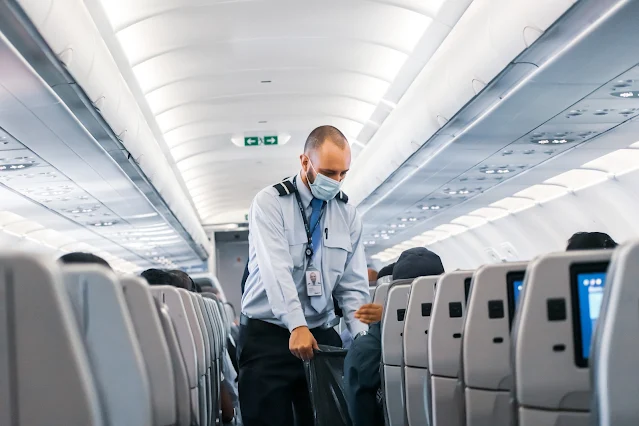Positive tests, not being fully vaccinated, new outbreaks and changes to travel rules - any of these and more could lead to your holiday being cancelled.
Many airlines, accommodation providers and package holiday companies have introduced flexible bookings to help with the risk of COVID cancellations. However, a lot of these schemes offer rebooking rather than refunds. It’s also common to find cancellation ‘windows’ that close a few days before the departure date - no good in the event of last-minute disruption.
So what are the prospects of getting your money back in different cancellation scenarios? And what do you have to do to make sure?
1. Getting a positive test before you fly
Probably the most common reason for holidays being cancelled over the past two years is travellers testing positive before they go. Most countries have at some point made it mandatory that all overseas visitors provide proof of a negative test. Many (Greece being just one example) still have these rules in place. A positive result means you won’t be allowed into the country, scuppering your holiday plans.
Probably the most common reason for holidays being cancelled over the past two years is travellers testing positive before they go. Most countries have at some point made it mandatory that all overseas visitors provide proof of a negative test. Many (Greece being just one example) still have these rules in place. A positive result means you won’t be allowed into the country, scuppering your holiday plans.
Holidaymakers who find themselves in this situation could well fall foul of cancellation window rules, as explained above. Many companies will no longer offer refunds or even rebookings anything less than 48 or 72 hours before departure - exactly the time you will be asked to take a COVID test.
This has led to thousands of people losing their money on holidays they have had to cancel last minute because of a positive COVID test. But there is a solution - holiday insurance. Most travel policies advertising COVID cover will pay out on cancellations arising from a positive test, even right at the last minute.
2. Not being allowed on the plane because you have COVID-like symptoms
Not all countries ask you to take a test before you travel anymore. But if you show up at the airport and you or a member of your family show COVID-like symptoms - fever, cough etc - there is every chance you won’t be allowed on the plane. Many airlines operate a policy of doing temperature checks and visible symptoms screening on passengers.
Again, because of the last-minute nature of the cancellation, your safest bet for getting your money back in this scenario is travel insurance. But it is also a bit of a grey area. If your symptoms are confirmed by a positive test, no problem, you will be able to claim your money back under the COVID cancellation terms of most policies. But if you are refused boarding and you test negative, you could be in a trickier situation.
Check the wording of your travel policy carefully, or contact your provider to ask specifically about this scenario. They will be able to advise you about the proof they would require to pay out in this situation (e.g. a letter from your airline).
3. Your resort is closed because of a COVID outbreak
Fingers crossed this kind of situation is a thing of the past, but you just never know. We all thought we were heading out of the tunnel when Omicron struck. As we’ve seen many times, COVID outbreaks can come suddenly and escalate fast. Different places respond in different ways. There’s always the chance that a spike in cases in your destination could lead to local lockdown measures, including places like hotels, restaurants, bars etc being told to close.
If you have booked a package holiday and your resort is shut down for any reason, you should be covered by travel industry regulations. These make it compulsory for travel companies to offer refunds or at least alternative arrangements if a package holiday cannot be provided as sold.
These regulations do not, however, extend to direct bookings with accommodation providers. You’d be at the mercy of the cancellation policies of individual providers. Again, your best bet would be to make sure you have robust holiday insurance.

4. The UK government warns against travel to your destination because of a COVID outbreak
This is a tricky one. Although the UK government has now scrapped its ‘traffic light’ system for rating the COVID risks of other countries, that doesn’t mean it won’t warn against travel to certain countries if outbreaks happen in the future - especially if new variants are involved. And if that does happen, travellers could find themselves caught between a rock and a hard place.
FCDO travel advice is not legally binding (unlike some of the outright travel bans we’ve seen over the past two years). It is advisory, which means that most airlines will continue flying, and pre-booked package holidays can go ahead. That puts the choice on the traveller - they either take the risk and go, or they heed the advice and cancel themselves.
Cancelling your own holiday puts you in a difficult position. Neither your airline nor your package holiday operator would be obliged to give you a refund. Again, you would be relying on individual cancellation policies.
In the normal course of things, travelling against FCDO travel advice would also invalidate your travel insurance. However, recognising the difficulties caused by the traffic light system last year, many travel insurance companies started offering add-ons which would cover you if you chose to travel. But to get a pay out for cancelling yourself, you would need a ‘cancel for any reason’ policy, which are still tricky to find in this country.













No comments